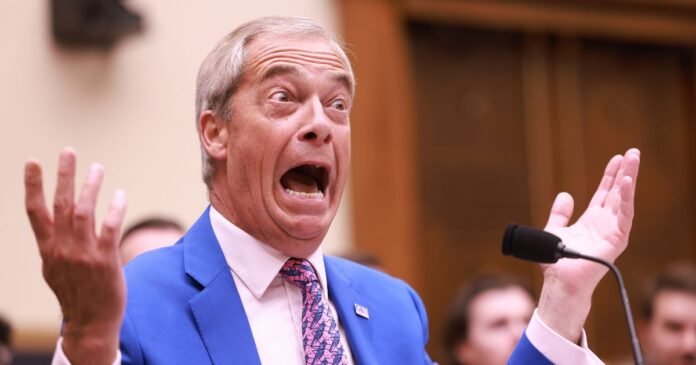Nigel Farage faced accusations of criticizing the UK while in the US to impress potential tech investors for his Prime Ministerial aspirations. Tensions escalated during a House Judiciary committee session between Farage and Democrat Hank Johnson, with Johnson suggesting Farage was lobbying for Elon Musk’s favor. Johnson also insinuated that Farage viewed Donald Trump as a mentor, a claim Farage refuted.
The committee exchange continued with Johnson alleging that Farage sought financial support for his political goals and aimed to influence US tech firms, like Musk’s, through his testimony. Farage, however, asserted that he had severed ties with Musk due to ongoing disagreements.
Farage’s testimony advocated for American citizens to be exempt from UK hate speech and online safety regulations, proposing that Trump should use trade measures to enforce this globally. Back in the UK, during PMQs, Keir Starmer criticized Farage for potentially pushing the US to impose sanctions that could harm British workers, labeling it as unpatriotic.
Farage, in response, dismissed Starmer’s accusations as misinformation spread by the UK Prime Minister. Earlier in the committee session, Farage was labeled a far-right politician leading a fringe party by Democrats, who also accused him of being a Putin-supporting free speech advocate and Trump loyalist.
Regarding a jailed individual for inciting racial hatred, Farage expressed regret for the situation and highlighted the consequences of free speech limitations. He emphasized the importance of free speech by citing examples of individuals facing legal consequences for their online postings.
The Reform UK leader’s appearance before the US House Judiciary Committee shed light on contentious issues surrounding free speech and political affiliations, sparking debates and raising concerns over potential international ramifications.
